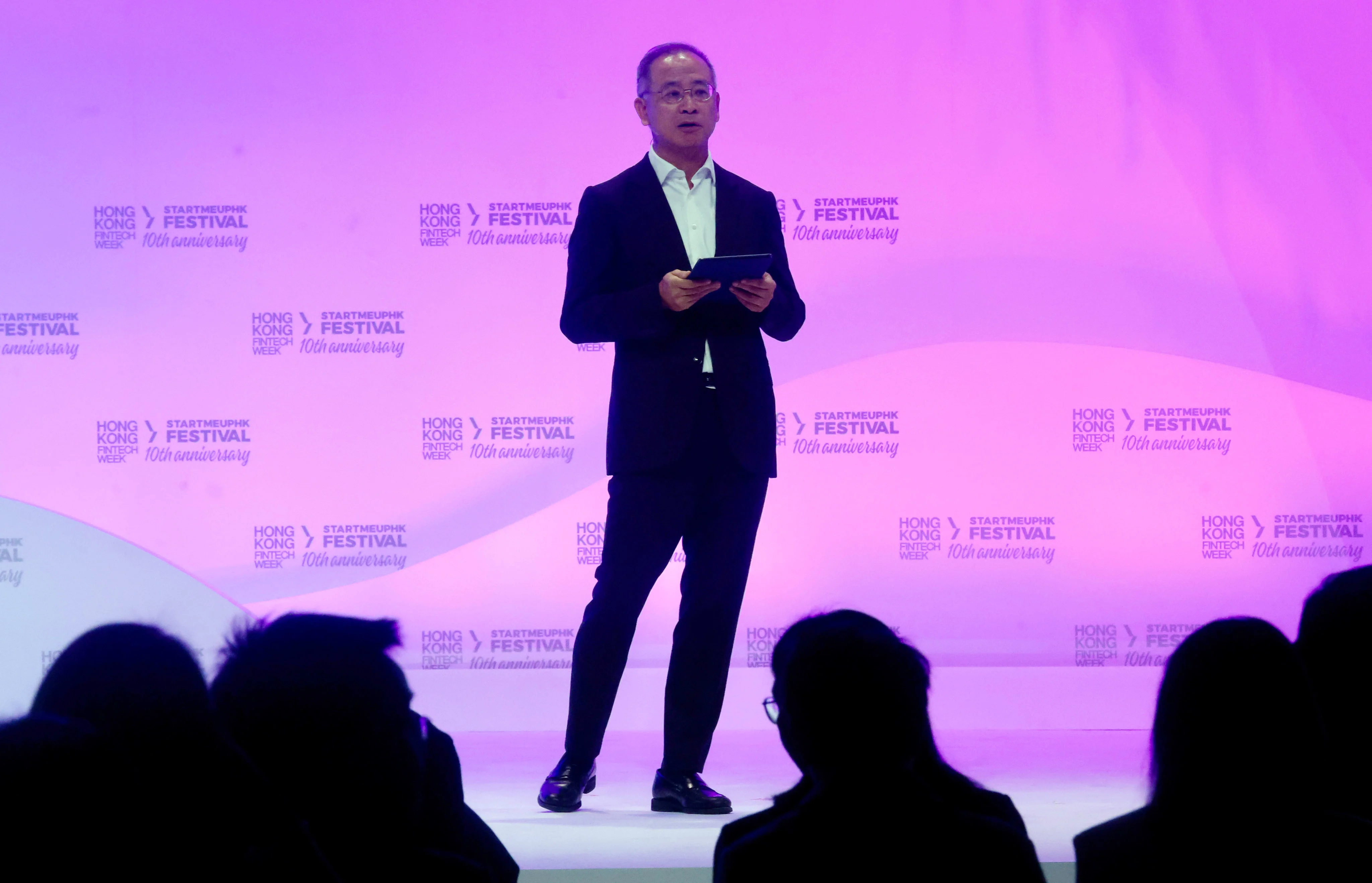Copyright scmp

Hong Kong on Monday launched a five-year fintech strategy, pledging to advance artificial intelligence and tokenisation initiatives responsibly to strengthen the city’s position as a leading fintech hub. The Hong Kong Monetary Authority (HKMA), which unveiled the plan at the flagship Fintech Week conference, said it expected to launch more than 40 initiatives to embed AI in finance, build a financial tokenisation ecosystem, create data and payment infrastructure, and enhance sector-wide resilience. “Ten years ago, the term fintech was far removed from the general public, but now fintech is a part of everyday life,” said Eddie Yue Wai-man, chief executive of the HKMA, in a media briefing after unveiling the Fintech 2030 strategy. He said Fintech 2030 was the third stage of Hong Kong’s fintech strategy for the financial sector, noting that the first phase, launched in 2017, introduced digital banks, and the second phase in 2021 stressed fintech’s practicality. “The emphasis of fintech 2.0 was on the practical use of fintech for payments and transactions, while fintech 3.0 is more about resilience and charting the future of fintech,” Yue said. “Over the next five years, we will have 40 measures in four areas to make sure Hong Kong has more in-depth development, more resilience, and most importantly, we must be ready for the future.” Hong Kong secured the world’s top fintech ranking in the Global Financial Centres Index in September, following three years of policies to establish the city as a digital-asset hub. The city is now home to more than 1,200 fintech companies, a 10 per cent increase from last year, with the sector’s revenue expected to exceed US$600 billion by 2032. The first project under Fintech 2030, likely to be rolled out by the end of this year, could be for the settlement of tokenised money market funds. The plan is to have a comprehensive settlement system for the existing tokenised money market funds in the market. This will mark the next phase of the HKMA’s Project Ensemble sandbox launched last year to explore the tokenisation of real-world assets and facilitate a new financial market infrastructure that involves digital money and assets. “Banks can use tokenised deposits to settle these funds, [and] regarding the settlement among banks, we would also like them to use the central bank digital currency for settlements,” Yue said. Other uses for tokenisation could follow in green finance, carbon emissions trading, corporate treasury management and cross-border trade finance, he added. Yue said the HKMA was in talks with the central banks of Brazil and Thailand to use blockchain and tokenisation to make cross-border trade transactions “quicker and cheaper”, while making it easier for small and medium-sized enterprises (SMEs) to obtain trade finance to expand their business. In addition, the HKMA is set to launch an AI strategy aimed at safely integrating AI across the financial sector. The strategy will bring together banks, tech firms and academia through initiatives like an enhanced GenAI Sandbox and a unified AI infrastructure. It will also promote trust and transparency using the Responsible AI Toolkit and Project Noor, which were developed in partnership with the Bank for International Settlements Innovation Hub. Regarding data, the HKMA plans to build a system for seamless data flow. This system aims to reduce friction, improve risk management, and unlock new opportunities in SME financing, personalised products and real‑time compliance. The de facto central bank will also expand data sets available on its Commercial Data Interchange, including new data from the government. On enhancing resilience, the HKMA plans to introduce a new fintech-specific cybersecurity certification framework and an early cyber-threat detection system based on real-time analysis. It will also promote the financial industry’s readiness to defend against potential attacks from quantum computers. Overall, the goal of Fintech 2030 was to serve as a blueprint to prepare Hong Kong for the future, enhance the efficiency and safety of its financial sector, and thereby strengthen its position as an international financial centre, Yue said. The Beijing-headquartered Asian Infrastructure Investment Bank announced on Monday at Fintech Week that it would open a hub office in Hong Kong to meet growing business needs. The Hong Kong government said it was committed to assisting the development bank in leveraging the city’s world-class financial resources to support its operations. Financial Secretary Paul Chan Mo-po, in his address to Fintech Week, emphasised responsibility and sustainability in financial innovation, particularly in areas such as digital assets and AI. “While we encourage innovation, we must also ensure its real-world applicability, investor protection and its impact on financial stability,” he said. “With our concerted efforts, I’m sure that Hong Kong will grow stronger as a vibrant, future-ready hub for fintech excellence.” HSBC Group CEO Georges Elhedery said during a panel discussion at the conference that the bank had launched several tokenisation and fintech projects in the city. Standard Chartered CEO Bill Winters, who was on the same panel as Elhedery, said that he was “extremely encouraged to see the degree to which Hong Kong is being used as a test bed or staging ground for innovations”. Separately, market regulator Securities and Futures Commission (SFC) issued two circulars to licensed virtual asset trading platforms (VATPs) to help them tap global liquidity and broaden their range of products and services. VATPs will be permitted to share a unified order book with affiliated overseas platforms, a move that will enhance market liquidity and price efficiency. They will also be allowed to offer new products to professional investors, including virtual assets without a 12-month track record and HKMA-licensed stablecoins. Furthermore, they can distribute tokenised securities and other digital asset-related investment products. Later, the SFC said it would consider allowing brokers to direct client orders to regulated overseas liquidity pools within the same group.



